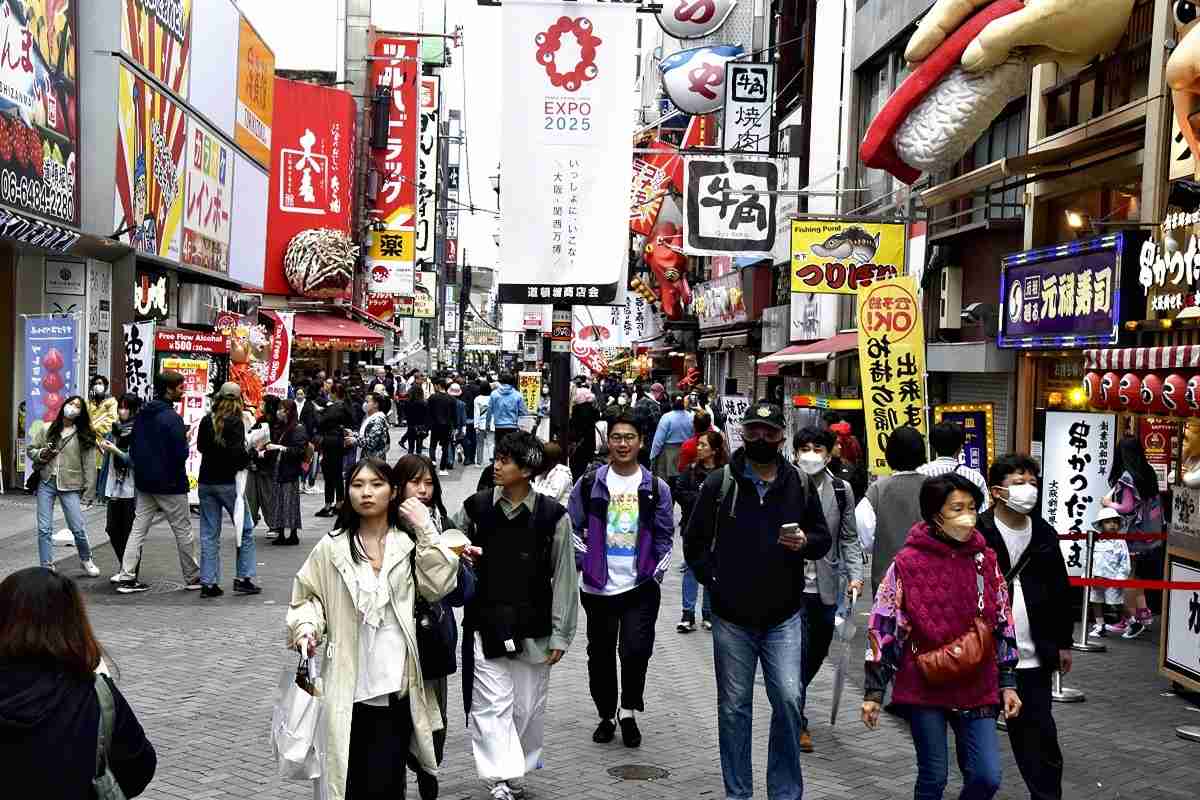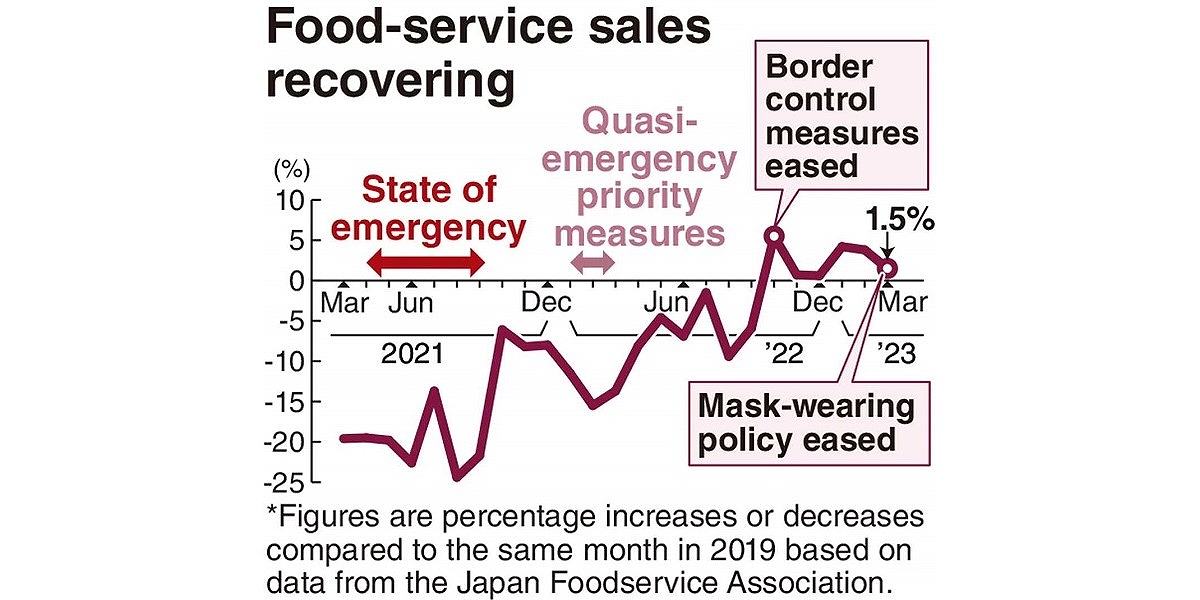
The Minami shopping district in Osaka City is seen crowded with people on April 26.
20:00 JST, May 4, 2023
The food service industry is showing signs of stabilizing after being hit hard by the COVID-19 pandemic. Sales in the sector exceeded pre-pandemic levels for the sixth consecutive month through March, as social activities gradually returned to normal.
The nation has much to look forward to, including the 2025 Osaka-Kansai Expo, but a labor shortage could hinder full-fledged recovery.
According to the Japan Foodservice Association, total food service sales rose 18.8% in March from a year earlier, and even marked a 1.5% jump on the pre-pandemic figure for 2019.
By business category, the fast-food sector saw sales rise 13.2% from the 2019 level, while sales at casual dining restaurant chains recovered to 6.7% shy of the pre-pandemic level.
Sales at pubs and izakaya drinking establishments — which were greatly impacted by restrictions on the serving of alcohol and declined by about 90% at one time — have recovered to a point 35.5% below the pre-pandemic level.
The rising number of domestic customers amid growing social activities and the return of foreign visitors to Japan have both contributed to the significant recovery of food service sales. The lowering of COVID-19’s status to Category V under the Infectious Diseases Law on May 8 is also expected to provide a tailwind.
“The outlook is bright [for the industry] as the impact of the coronavirus has bottomed out,” a source at a major restaurant chain said.

Labor shortage concerns
The Osaka-Kansai Expo, scheduled to run from April to October in 2025, is another positive factor and is anticipated to draw about 28.2 million visitors. During that period, many people are expected to visit Osaka and other parts of the Kansai region, likely fueling increased demand for food services.
The Osaka Restaurant Management Association, which plans to have a pavilion at the expo, is currently considering ways to take advantage of this opportunity to revitalize the local food service industry.
“We hope to attract visitors to restaurants and eateries outside the Yumeshima area [where the expo will be based],” said Kanji Nakai, the association’s chairperson, who also serves as president of okonomiyaki restaurant chain operator Chibo Corp.
However, there are fears of a serious shortage of labor. In a survey conducted in April by Tokyo Shoko Research, Ltd., some 85% of dining establishments registered a shortfall of part-time and other non-regular employees, marking the highest figure among the industries surveyed.
Major restaurant chains have been affected, too, with some being forced to close stores due to a lack of staff. Yayoi, a set-meal restaurant chain, has adopted new regular holidays and has cut business hours at some of its outlets. Chibo, meanwhile, set regular closing days for a number of its stores from April.
A string of major restaurant chain operators with robust business performances, such as Ohsho Food Service Corp. and Zensho Holdings Co., raised their wages this spring. The key to post-pandemic sustainable growth is likely to hinge on whether the virtuous cycle of attracting workers by investing in human resources can continue.
Top Articles in Business
-

Prudential Life Insurance Plans to Fully Compensate for Damages Caused by Fraudulent Actions Without Waiting for Third-Party Committee Review
-

Narita Airport, Startup in Japan Demonstrate Machine to Compress Clothes for Tourists to Prevent People from Abandoning Suitcases
-

Japan, U.S. Name 3 Inaugural Investment Projects; Reached Agreement After Considerable Difficulty
-

Toyota Motor Group Firm to Sell Clean Energy Greenhouses for Strawberries
-

SoftBank Launches AI Service for Call Centers That Converts Harsh Customer Voices into Softer Voices
JN ACCESS RANKING
-

Japan PM Takaichi’s Cabinet Resigns en Masse
-

Japan Institute to Use Domestic Commercial Optical Lattice Clock to Set Japan Standard Time
-

Israeli Ambassador to Japan Speaks about Japan’s Role in the Reconstruction of Gaza
-

Man Infected with Measles Reportedly Dined at Restaurant in Tokyo Station
-

Videos Plagiarized, Reposted with False Subtitles Claiming ‘Ryukyu Belongs to China’; Anti-China False Information Also Posted in Japan






















